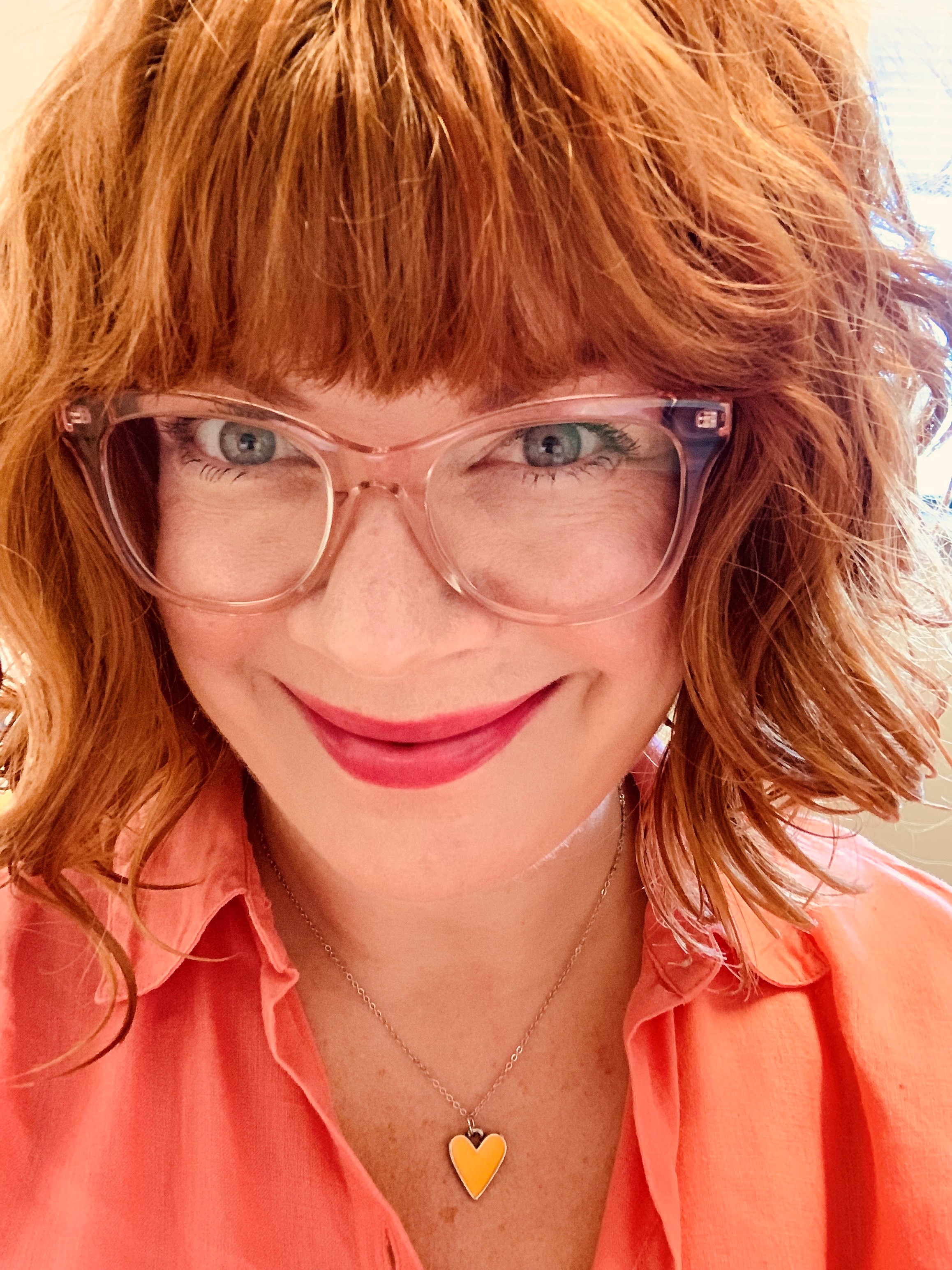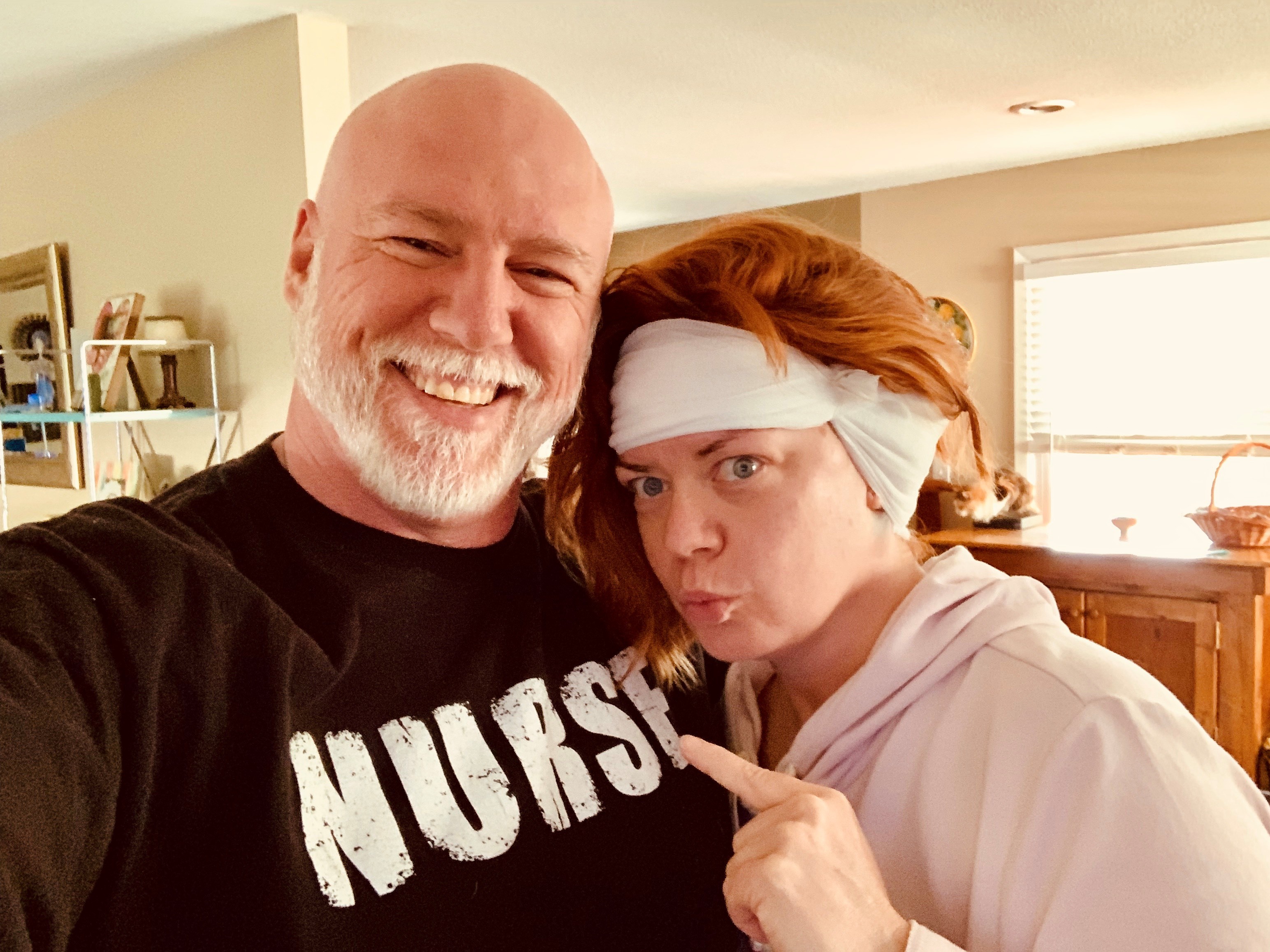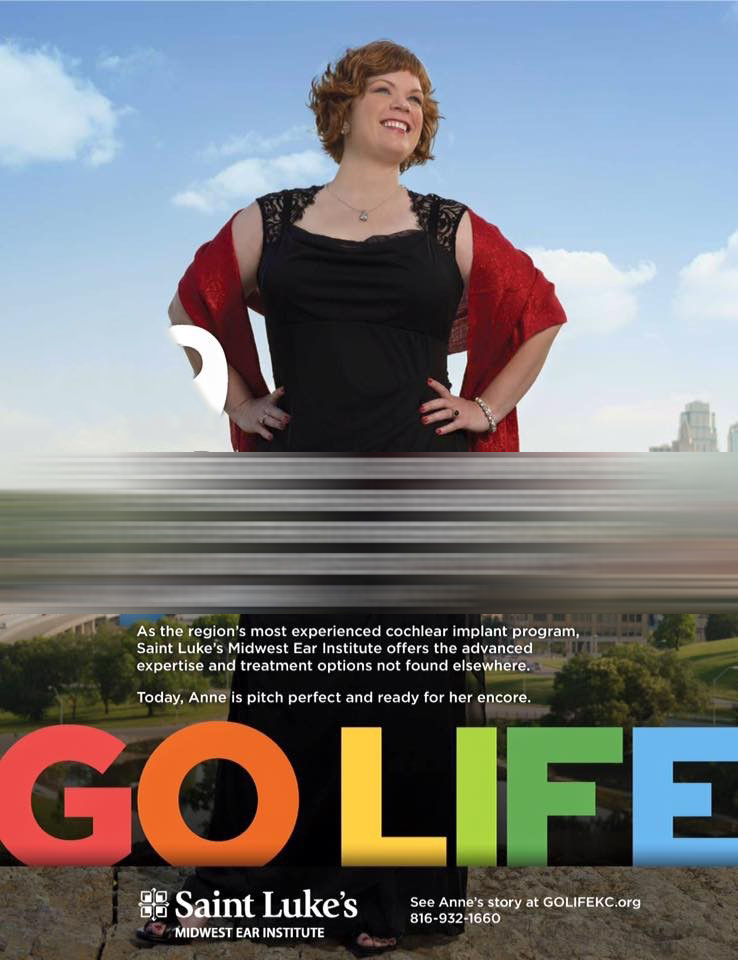Dr. Anne W. grew up singing and followed her passion to be an opera singer. After she began to struggle with vocal pitch issues that she could not hear, she found out she had a hearing loss. Eager to get back to her career, she is now a singer with cochlear implants and has been gaining back her confidence in her career.
“I am a singer, born and bred.
Having an internationally respected choral conductor for a father and a French teacher for a mother, our family always joked that they were breeding opera singers. Yes, I was the child that heard ‘Happy Birthday’ at the age of 2 and sang it back perfectly after one listening. It has always been who I am.
Fast forward to completing my master’s degree in 1999, I began living a typical opera singers’ life, moving from Arizona, to Chicago and New York, auditioning and performing with regional opera companies and orchestras. Meanwhile, I was teaching voice and conducting choirs to make ends meet. It was when I was living in New York, followed by a contract to sing as a Young Artist at Sarasota Opera that I really began to know something was not right.
Noticing my hearing was not right
 There were two particular experiences that were huge turning points in this realization. In my private vocal coaching sessions at Sarasota, in 2004, I was receiving feedback that I was pushing sharp in the top of my voice, which had never, ever been an issue. Also, I was struggling to hear staging instructions, particularly when we were outside of the rehearsal room and on the main stage. I began making mistakes in musical rehearsals and was not able to pick things up as quickly as I once did. It took a much larger effort to remain on top of things and keep up, which was exhausting.
There were two particular experiences that were huge turning points in this realization. In my private vocal coaching sessions at Sarasota, in 2004, I was receiving feedback that I was pushing sharp in the top of my voice, which had never, ever been an issue. Also, I was struggling to hear staging instructions, particularly when we were outside of the rehearsal room and on the main stage. I began making mistakes in musical rehearsals and was not able to pick things up as quickly as I once did. It took a much larger effort to remain on top of things and keep up, which was exhausting.
The second was while I was working with the artistic director of an opera company after being selected to sing for some important donor concerts. During our rehearsals, he became very frustrated with me because, again, I was pushing sharp in the top of my voice. The horrifying part was that I could not hear it, or control it. My professionalism was being undermined and I was unable to fix it, nor was there anyone who could help. That is really when I began to hide.
A ski-slope hearing loss diagnosis
After heading back to Arizona to begin a doctorate, I found an ear, nose and throat doctor (ENT) who validated my concerns with an audiogram that confirmed a ski-slope hearing loss. In 2005, we proceeded with bilateral hearing aids and from that moment on, I was really living in fear of being found out. As I worked across the country as a singer/teacher/conductor, I continued to consult audiologists and ENTs, most of whom threw up their hands and looked at me with awe that I was ‘functioning as well given my profound hearing loss.’ Daily activities also began to become more difficult and required more and more effort. I began to retreat and isolate not only from performing, but from life.
I met with nine different specialists before meeting an audiologist who told me that I may be a candidate for a cochlear implant. There were risks associated with my music, but my daily life had depleted to the point that I knew there were some big decisions ahead. In 2012, I made my way to begin the conversation.
Opera singer with cochlear implants
 I understood that the ultimate risk was that I would never regain accurate pitch with a cochlear implant. Trust me when I say that I did not take this decision lightly. What ultimately led to my decision to go with Cochlear was the slim-straight electrode and their technology advancements.
I understood that the ultimate risk was that I would never regain accurate pitch with a cochlear implant. Trust me when I say that I did not take this decision lightly. What ultimately led to my decision to go with Cochlear was the slim-straight electrode and their technology advancements.
With my ski-slope hearing loss and my musical career, we knew that trying for the greatest amount of acoustic hearing that could be preserved was vital. I was also intrigued by the partnership with ReSound1 for bimodal hearing solutions. Cochlear’s time-tested reputation gave me a strong reassurance that this was a company that had been around from the beginning and had new places to grow.
I realized that I had to be willing to let go of my fears and be open to what was possible.
Three months after implantation, I started teaching lessons. Four months later, I accepted a university position teaching voice and began to perform in public again. With each experience, I gained confidence and a new sense of purpose.
The Nucleus 6 Sound Processor and accessories
 I believe that with the right tools, all thing are possible. When I first received the sound processor, the Cochlear™ Nucleus® System with Hybrid™ Hearing was not yet available. As a research study participant at my local university, I was able to upgrade from the Nucleus 5 Sound Processor to the Nucleus 6 Sound Processor with Hybrid Hearing.
I believe that with the right tools, all thing are possible. When I first received the sound processor, the Cochlear™ Nucleus® System with Hybrid™ Hearing was not yet available. As a research study participant at my local university, I was able to upgrade from the Nucleus 5 Sound Processor to the Nucleus 6 Sound Processor with Hybrid Hearing.
Because of the added acoustic component2, I immediately noticed a greater richness in sound, since my residual middle and low frequency hearing was now being amplified. This has made a huge difference in my ability to clearly understand speech in noisy environments. It also improved the tone quality when listening to music. I am still hearing the vibrant high frequencies from my sound processor, but with the added benefit of the middle and low frequencies through the hearing aid. The overall sound has become more fully balanced.
Another tool that has become a favorite of mine is the True Wireless™ Phone Clip. There are so many things to love about it! First, the pairing process is incredibly simple. Once you have paired the Phone Clip with your sound processor, the Bluetooth®3 streaming world is your oyster! Let’s face it, with a regular phone you either have to try to find the sweet spot while holding it up to your processor, or the whole universe gets to listen to your conversation via speaker.
Not only do I use it to talk on the phone, I stream podcasts, music and movies straight to my processor. At work, I am connected to my laptop and utilize it for phone conversations, video conferencing and anything else that would require using traditional headphones. Because it is rechargeable, I just keep the cord plugged in to my sound processor battery charging station and let it charge overnight. It truly is a technology game changer!
I have now upgraded to the Nucleus 7 Sound Processor and am loving the new technology and capabilities!
Finding the lesson in my hearing loss
Coming from a family full of educators has taught me to always find the lesson. Ironically, what I most feared losing ultimately saved me. My technical proficiency as a musician allowed me to retrain my brain, but experiencing the loss led me to discover what I loved most and about music – connection. Connecting to stories, melodies, words and other people through this universal medium was the greater gift.
I believe that my hearing loss has allowed me to step into my purpose in ways I otherwise could not have imagined. As a teacher and a coach, I am now able to more fully connect with students who are facing major life transitions. My hearing experience has taught me to shine out loud in the most incredible ways, and my hope is to help others do the same.”
Is your hearing loss affecting your career like Anne, an opera singer with cochlear implants? Learn more about cochlear implants as a potential solution for your hearing loss.
Check out Dr. Anne W.’s website here.
- ReSound is a trademark of GN Hearing A/S
- The Acoustic Component should only be used when behavioral audiometric thresholds can be obtained, and the recipient can provide feedback regarding sound quality.
- The Bluetooth® word mark and logos are registered trademarks owned by Bluetooth SIG, Inc. and any use of such marks by Cochlear is under license.